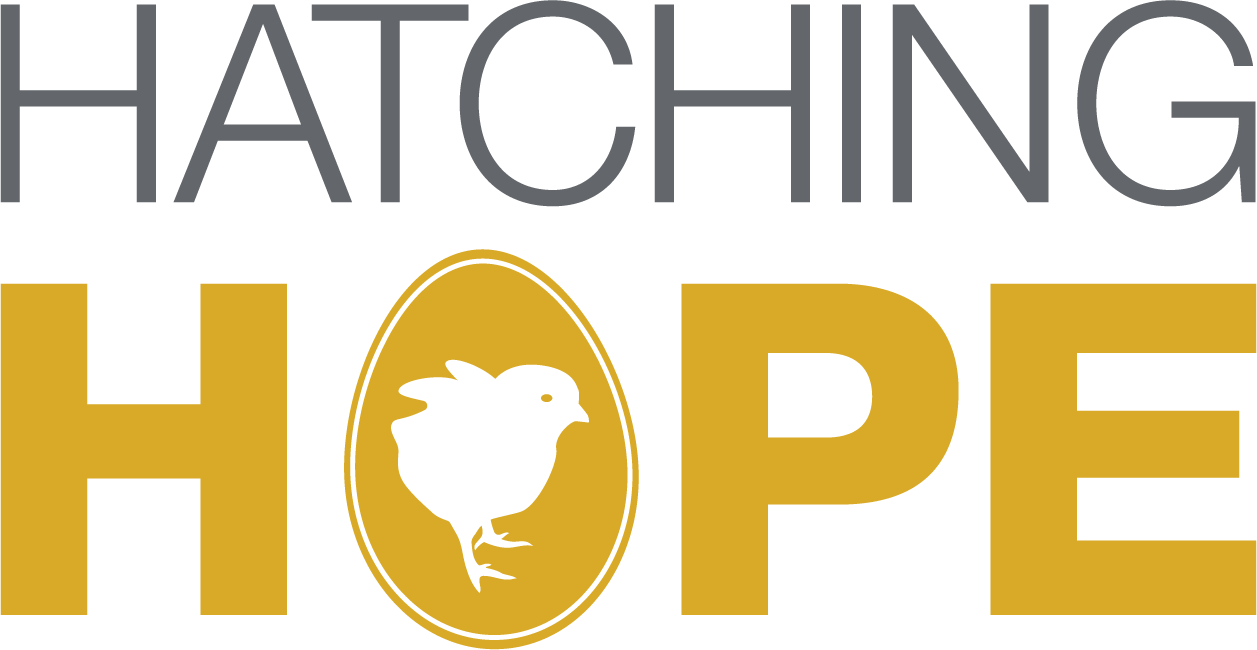
Bringing sustainable practices to the communities where we work
Hatching Hope’s goal is to improve the nutrition and economic livelihoods by reaching 100 million people by 2030 through the production, promotion and consumption of poultry.
For this to be successful, the support we provide must be sustainable for the people and communities we work with.
Poultry has huge potential to generate sustainable incomes for farming communities, while offering high quality animal protein for consumer markets. We believe by expanding poultry production, we can tackle global issues like food insecurity and at the same time lift up women entrepreneurs in rural communities.
Hatching Hope works with farmers to make production efficient and sustainable, focusing on sustainable feed, climate resilience, water management and sustainable market access.
Sustainable Feed
Poultry farmers need access to quality feed as they expand and strengthen their businesses. But this can place a financial burden on emerging businesses. Hatching Hope teams work with farmers to identify affordable, locally-available feeds and ingredients that provide the nutrients their flocks need.
To optimize the nutrient intake and productivity of Hatching Hope farmers' flocks in India, Cargill experts conducted nutritional analysis on locally available ingredients such as broken rice, dried fish and Azolla. After reviewing the analysis, they developed an optimal feed composition to help small-scale farmers improve the nutrition and productivity of their flocks using local ingredients, some of which farmers gather or produce themselves. Hatching Hope has already begun replicating this process in other areas.
Water Management
Good water management practices are key to successful farm management. With many farmers living in vulnerable areas, water management is integrated into the animal management training that Hatching Hope provides farmers. By developing a better understanding of improved water management practices, farmers that are part of Hatching Hope are able to ensure that their birds have the resources they need to thrive.
Climate Resilience
Small-scale farmers are some of the people in agriculture most impacted by climate change. Through Hatching Hope’s climate resilience and environmental stewardship training, small-scale farmers adapt their farms to the changing climate. This helps farmers mitigate the negative effects of climate change on their livelihoods, while properly managing the natural resources they rely on. Safe disposal of waste, management and retention of water, and farming with materials that are readily available and respectful of the local environment are just some of the areas covered in Hatching Hope trainings.
In India and Kenya, Hatching Hope uses species of poultry adapted to local conditions. Hatching Hope promotes construction of biosecure poultry housing and equips farmers with tools to compost poultry litter into fertilizer for their crops and gardens, reducing the use of chemical fertilizers.
Sustainable Market Access
Hatching Hope seeks to build more robust market systems and strengthen local farmers’ roles within them. Building on existing farmer groups, Hatching Hope promotes the setting up of farmer-owned organizations that link producers with key products and services.
Hatching Hope also fosters partnerships between producer groups and actors across the poultry value chain, ensuring that farmers have choices regarding trading partners, input suppliers and extension support - and can thrive independently.
Solutions to challenging problems like poverty and hunger are context-specific, and require specific interventions based on the social, environmental and market conditions in the country. Hatching Hope projects in India, Mexico, and Kenya are tailored to the realities facing households in each project area. To learn more about Hatching Hope’s approach in each country, visit the project page for India, Mexico, and Kenya.





